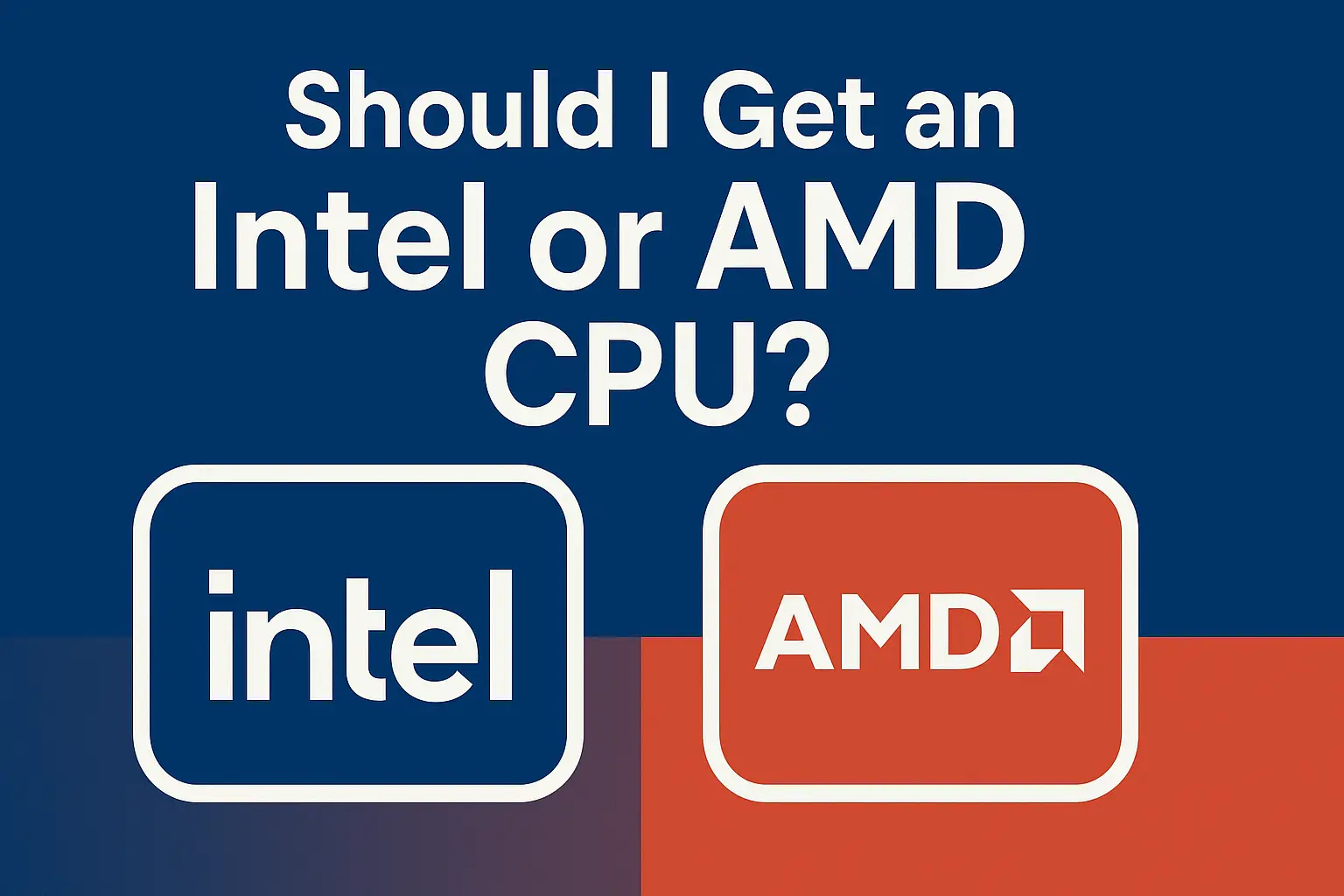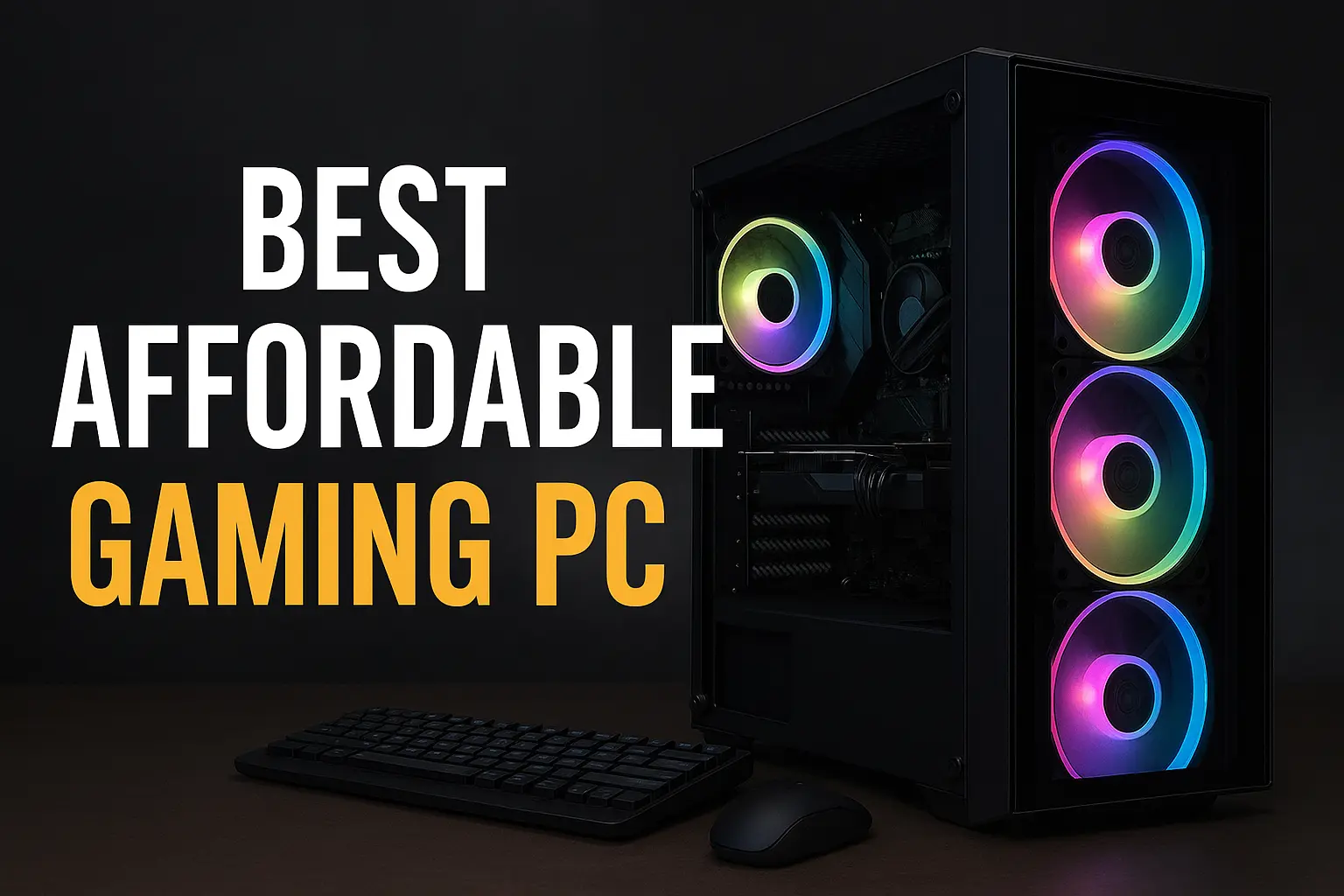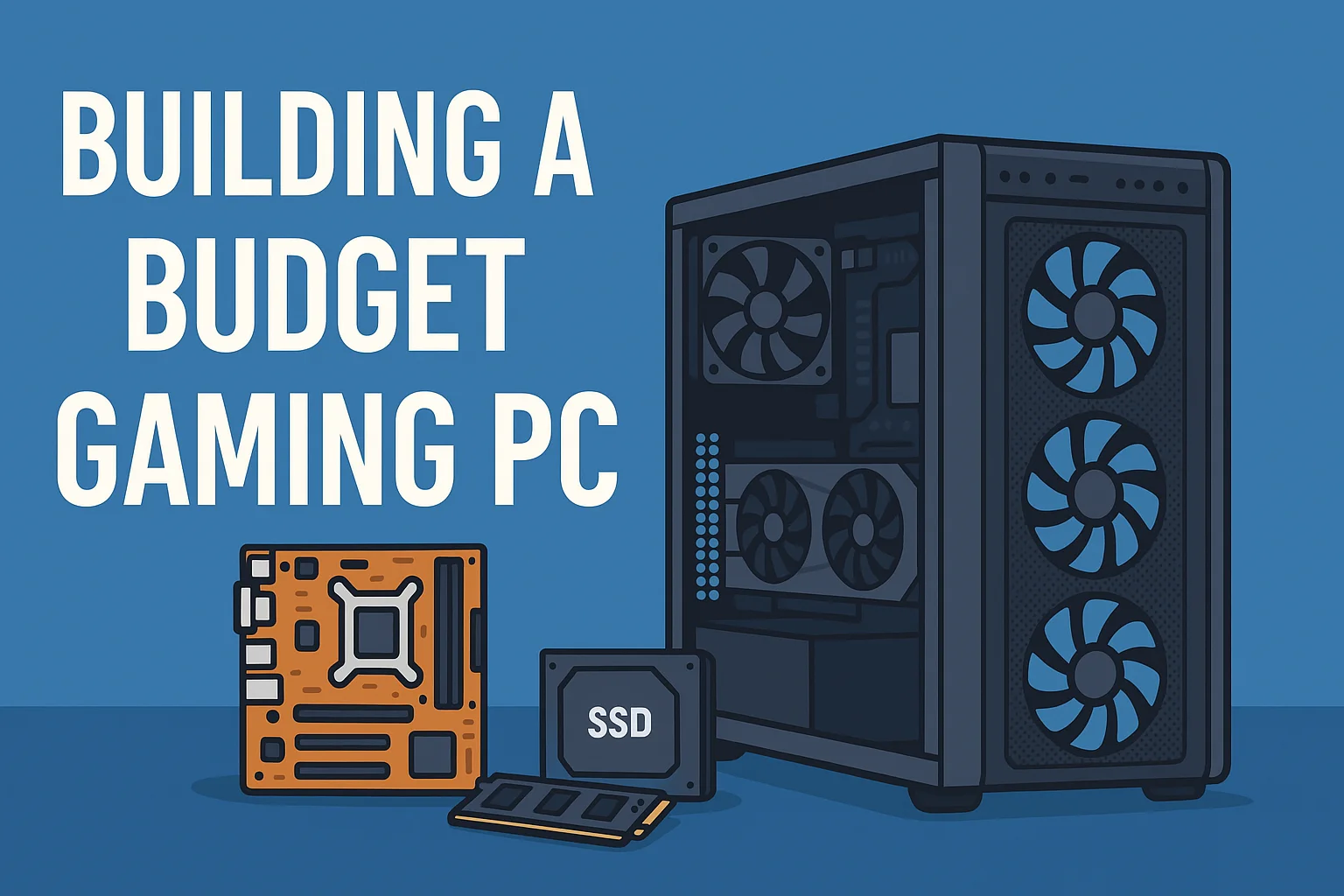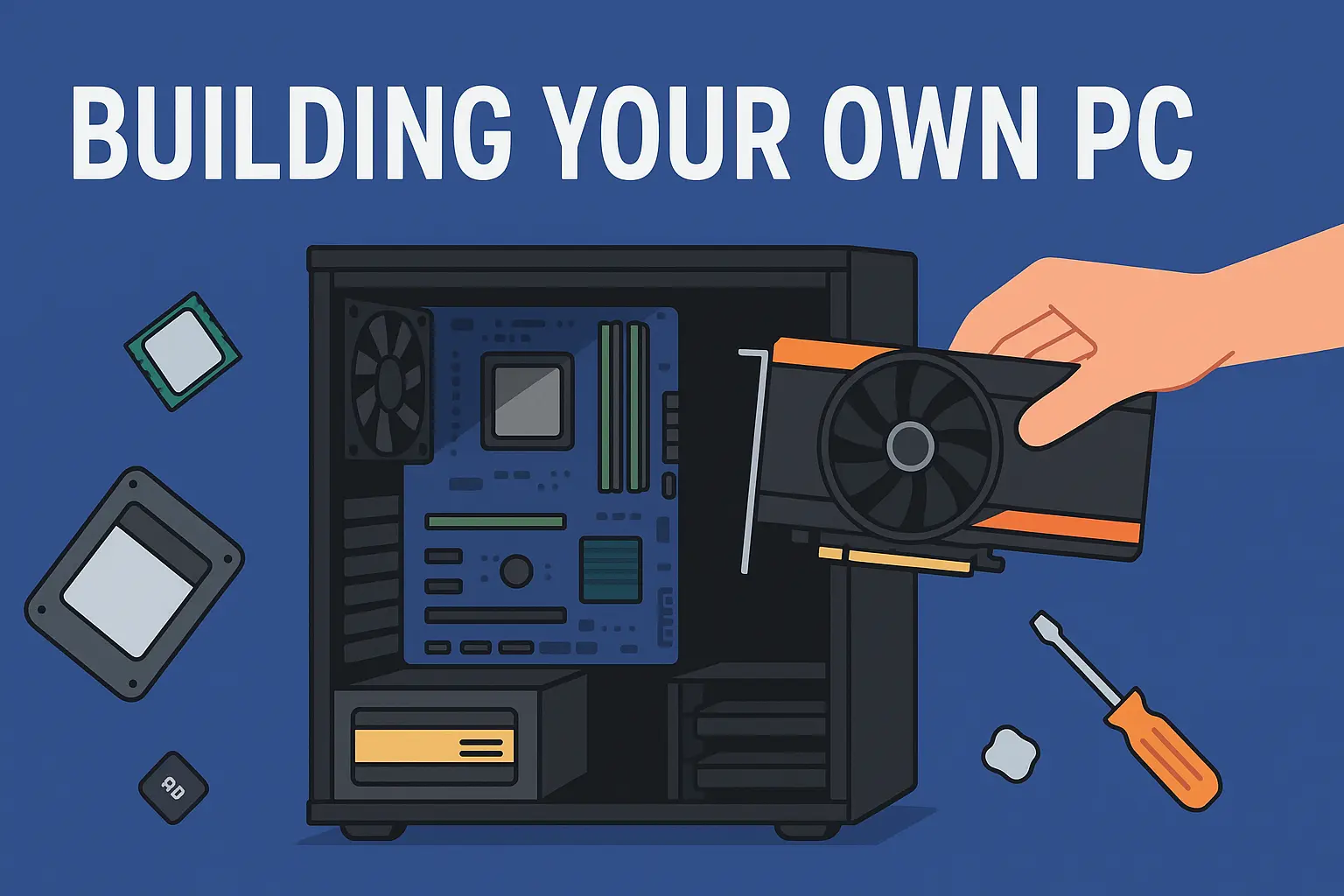When building or upgrading a pc, one among the biggest decisions you’ll face is deciding on the proper CPU. The CPU, or Central Processing Unit, is the mind of your computer, handling the whole lot from strolling programs to processing information. For maximum humans, the selection comes down to two foremost manufacturers: Intel and AMD. Both corporations make first-rate processors, however they have special strengths and weaknesses. So, how do you make a decision which one is right for you?
In this submit, we’ll discover the important thing factors to recall while choosing between an Intel or AMD CPU. We’ll look at performance, charge, compatibility, and destiny-proofing that will help you make the first-class choice for your needs. Whether you’re a gamer, a content material author, or just someone looking for a reliable ordinary laptop, this manual will offer the insights you want.
Performance: How Do Intel and AMD Compare?
Performance is regularly the first thing human beings consider whilst choosing a CPU. Both Intel and AMD provide processors that excel in special regions, so it’s essential to recollect what you’ll be the usage of your computer for.
For game enthusiasts, AMD has been making waves with its Ryzen 7000 collection. Take the Ryzen 7 7800X3D, for example—it’s a favorite due to its 3D V-Cache generation, which boosts gaming overall performance by way of dashing up how the CPU handles recreation facts. Intel isn’t a ways in the back of, although. The Core i9-14900K promises impressive results in gaming too, however it often comes at a better rate. If you’re after the exceptional CPU for gaming, AMD may give you extra bang in your dollar.
If you’re into video enhancing or different creative work, like 3-D modeling, the range of cores and threads topics plenty. AMD shines here with alternatives just like the Ryzen nine 7950X, which has as much as 16 cores. That’s a powerhouse for multitasking and heavy workloads. Intel’s Core i9-14900K competes nicely, but it is able to price more for similar performance. For experts or hobbyists who want critical energy, AMD frequently can provide more price.
For normal tasks—think internet surfing, streaming, or operating on spreadsheets—each brands have stable mid-variety options. Intel’s Core i5 and AMD’s Ryzen 5 lines are best for this. They’re fast sufficient to keep things clean without costing a fortune. Honestly, you can’t cross incorrect with either for simple use, but it’s well worth checking what’s on sale whilst you’re shopping.
So, AMD tends to lead in gaming and multi-threaded responsibilities like video modifying, even as Intel holds its very own in single-threaded apps, like a few older games or precise software.
Price and Value: Which Brand Offers Better Bang for Your Buck?
Your finances plays a big role in selecting a CPU. Intel and AMD both have alternatives for each charge variety, but they approach value otherwise.
On the lower give up, AMD’s Ryzen five 5600X and Intel’s Core i3-12100F are remarkable for finances builds. They cope with normal responsibilities and even some gaming with out draining your pockets. AMD’s older Ryzen 5000 series regularly pops up at bargain costs, making it a steal for all of us watching their spending. Intel’s finances CPUs are stable too, specially in case you need incorporated pics protected.
In the mid-range, you’ve got AMD’s Ryzen 7 7700X and Intel’s Core i5-13600K. Both are extraordinary for gaming and productiveness. AMD generally has a slight aspect on price here, and whilst you add in inexpensive motherboard options for its AM5 platform, it’s frequently the higher deal. Intel’s mid-range CPUs are a chunk pricier, but they can be worth it in case you need precise capabilities.
For high-stop builds, AMD’s Ryzen nine 7950X and Intel’s Core i9-14900K are the heavy hitters. AMD gives you greater cores for less cash, that is notable for such things as rendering or streaming. Intel’s pinnacle CPUs can aspect out in single-threaded tasks, however you’ll pay a premium for that overall performance. If you’re splurging, think about what you need maximum—raw electricity or specialized pace.
Generally, AMD wins on cost, specially for multi-threaded work or gaming. Intel may cost a little more, but it’s an amazing choose in case you’re after positive perks like built-in graphics or peak unmarried-threaded performance.
Compatibility: Motherboards, RAM, and More
A CPU doesn’t work on my own—it needs to play excellent along with your motherboard, RAM, and other components. Here’s how Intel and AMD stack up.
Motherboards are a huge deal due to the fact Intel and AMD use distinctive sockets. Intel’s trendy CPUs fit the LGA 1700 socket, at the same time as AMD’s Ryzen 7000 series makes use of AM5. AMD has a groovy gain here: they’ve promised to help AM5 until as a minimum 2025. That way you can switch in a more recent CPU down the street with out buying a new motherboard. Intel tends to switch sockets more frequently, so upgrading might imply changing greater parts.
When it involves RAM, each brands aid DDR4 and DDR5, but there’s a capture. AMD’s AM5 platform best works with DDR5, which is faster but pricier. Intel’s more recent CPUs can manage either DDR4 or DDR5, relying to your motherboard. If you’re reusing older DDR4 RAM to shop cash, Intel gives you that flexibility—AMD doesn’t.
Then there’s included pix. Most Intel CPUs come with it constructed in, that’s handy in case you’re no longer adding a separate pix card. It’s best for basic stuff or even mild gaming. AMD’s Ryzen CPUs usually skip this option, except of their APU fashions. If you’re building without a GPU, Intel would possibly prevent some trouble.
AMD’s long-term socket aid makes it a compatibility champ, at the same time as Intel gives greater options for budget builds with DDR4 and included photographs.
Future-Proofing: Which Brand Offers a Better Upgrade Path?
You don’t need your CPU to feel old in a yr or , so future-proofing matters. Let’s see how Intel and AMD plan for what’s next.
AMD’s AM5 socket is a large win for enhancements. Since it’s supported until as a minimum 2025, you could pop in a newer Ryzen CPU later with out a full rebuild. Intel modifications sockets greater often, so a new CPU would possibly suggest a brand new motherboard too. If you hate swapping out components, AMD’s approach is greater attractive.
Performance-smart, both agencies keep pushing forward. AMD’s Ryzen 7000 collection has taken the lead in gaming and multi-threaded obligations, thanks to more cores and smart designs like three-D V-Cache. Intel’s 14th Gen CPUs are nonetheless in the game, specifically for single-threaded stuff, but AMD feels like it’s constructed for in which tech is heading—greater cores, greater efficiency.
Software support isn’t a worry with both emblem; they’re each widely compatible. One area of interest factor: Intel has a moderate part in AI or system gaining knowledge of obligations with functions like Deep Learning Boost. AMD’s catching up, however Intel’s in advance if that’s your component.
For destiny-proofing, AMD’s socket toughness and multi-threaded strength make it a clever bet. Intel’s nonetheless strong, specially in case you want precise functions now.
Conclusion
Deciding between an Intel or AMD CPU boils down to what you want and what you can spend. Both brands convey a lot to the table, so allow’s sum it up. AMD is the current leader for gaming, energy efficiency, multi‑core workloads, platform longevity, and value. Intel still has meaningful advantages in single‑threaded speed, overclocking, and integrated UX features, but must improve ecosystem stability and platform lifespan.
Go with AMD in case you’re gaming, creating content material, or looking for cost. Their Ryzen CPUs, just like the X3D fashions, dominate gaming, and excessive-center alternatives address heavy workloads. The AM5 platform’s improve course is a bonus too. Pick Intel in case you need integrated pics, pinnacle single-threaded overall performance, or a price range build with DDR4. It’s also awesome for niche makes use of like AI. The actual trick is matching the CPU in your lifestyles—gaming rig, work machine, or all-purpose PC. Check your budget, browse some offers, and consider wherein you’ll be in some years. With both Intel or AMD, you’re getting a stable basis for a laptop that’ll hold up with you.







Leave a Reply